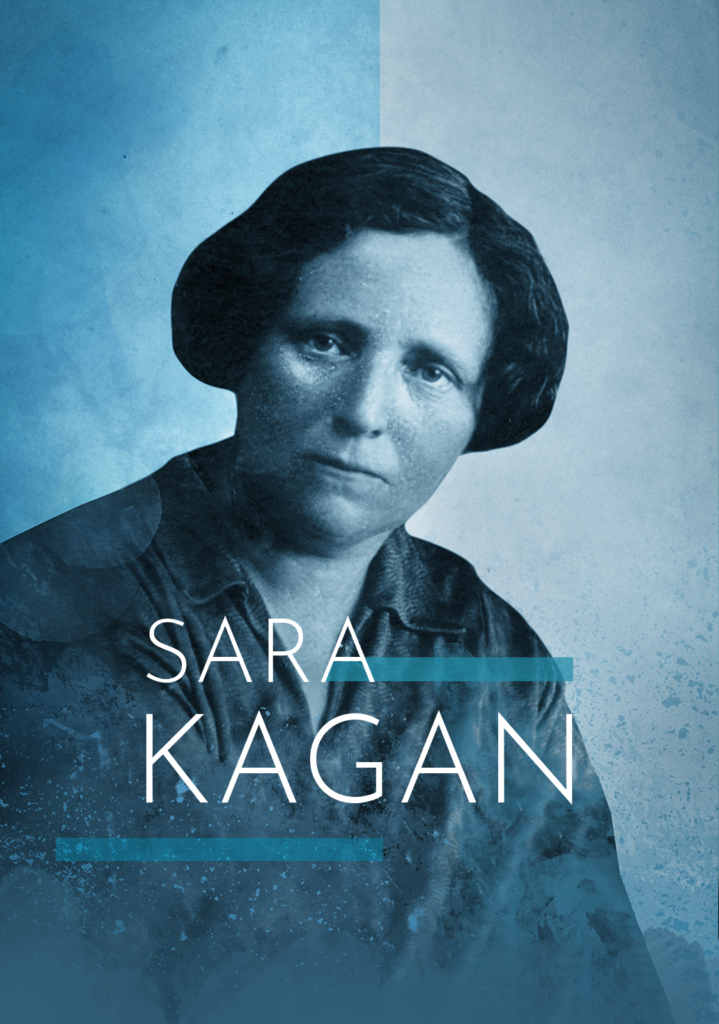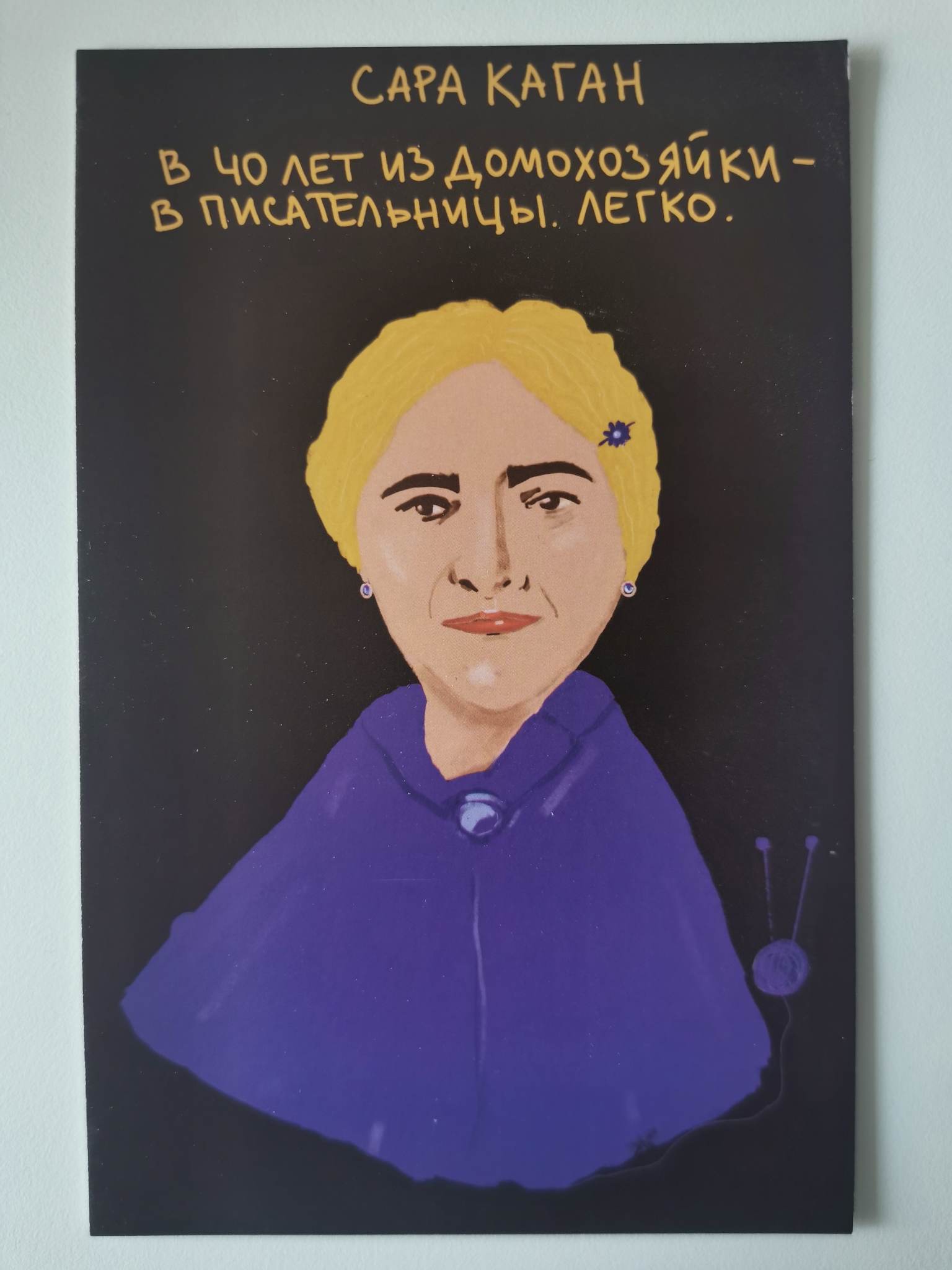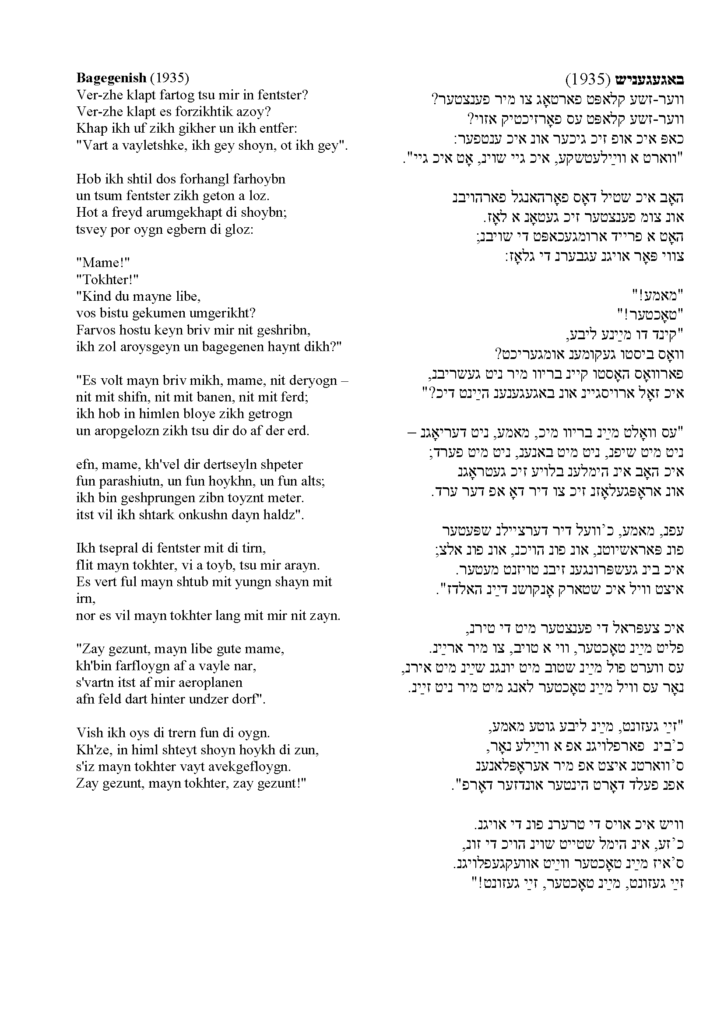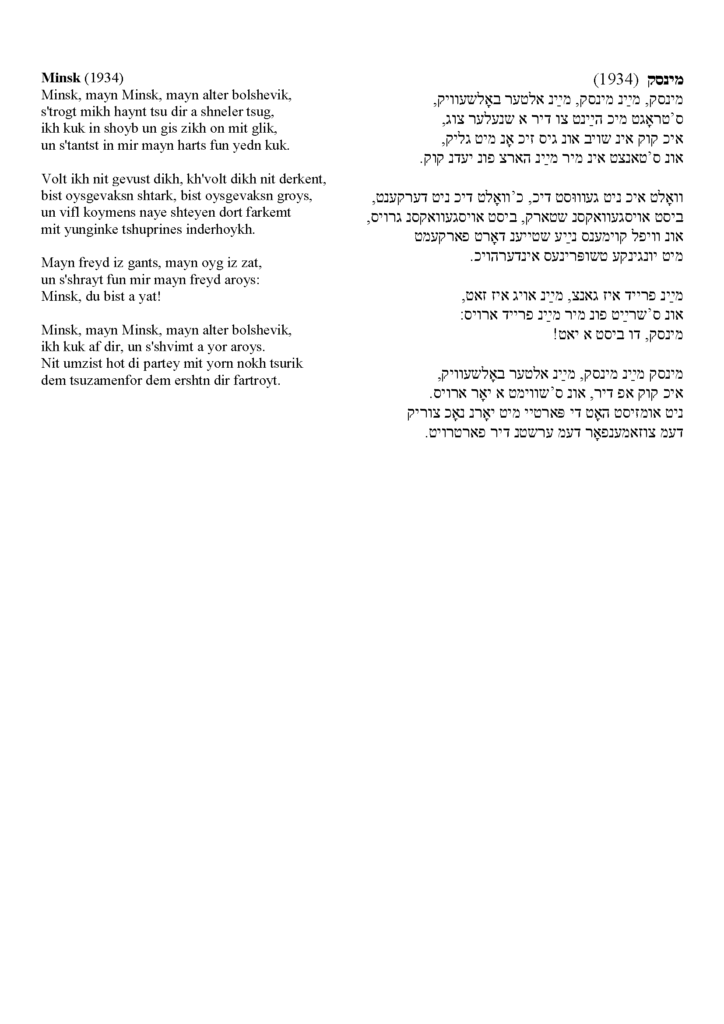3 VII 1885, Maksimovichi (today’s Belarus) – 1941, the Minsk Ghetto
>
Biography
Sara Kagan was a Yiddish poet and writer. In the 1930s, she was probably the only female member in the Jewish section of the Writers’ Union of the Byelorussian Soviet Socialist Republic (BSSR). She was particularly interested in writing about the countryside, nature, and contemporary social issues.
She was born in the village of Maksimovichi, located in the territory of today’s Belarus. Her father was a forestry worker and her mother took care of the home and ten children. Sara Kagan inherited her love for literature from her mother. As an adult, she worked as the head of the town library in Babruysk. On occasion, she participated in meetings for aspiring writers held in Minsk. In 1935, she moved with her family to Minsk, at the suggestion of the municipal communist party’s Jewish section of the Writers’ Union of the BSSR. She was most likely its only female member. After the move, she began evening studies at the Faculty of Philology of the Belarusian Pedagogical Institute. She continued to work, taking care of her home and three sons. In the 1930s, one of the children died of pneumonia, which affected her badly.
Sara Kagan wrote in Yiddish. She belonged to the generation of Jewish writers who took their first steps on the lierary stage in the post-revolutionary years. She debuted in 1929 with a collection of short stories titled Der ershter prayz (‘The First Prize’), followed in the pre-WWII decade by three collections of poems: In veg (‘On the Way’), Mayn heymland (‘My Homeland’), and Undzere mentshn (‘Our People’). Before the war broke out, she published a novel titled Der Fidler (‘Violinist’). Zmitrok Biadula translated some of her works, including a collection of short stories, into Belarusian in 1940. She worked in the editorial office of Shtern (‘Star’), a Yiddish-language literary magazine, where she often wrote about current affairs, paying particular attention to the issues related to the countryside, which remained close to her heart, especially the natural landscapes of Belarus and its peasants whom she depicted as heroes.
When the German army captured Minsk in 1941, Sara Kagan and her family were transferred to the ghetto. She died there, with her husband and younger son. Her older son was killed fighting at the front. None of her closest relatives survived the war.
The copyright owner of Sara Kagan’s portrait is Yad Vashem.
Sara Kagan, Yad Vashem, Hall of Names photos, Archival Signature: 15000/14118413
Sara Kagan was a Yiddish poet and writer. In the 1930s, she was probably the only female member in the Jewish section of the Writers’ Union of the Byelorussian Soviet Socialist Republic (BSSR). She was particularly interested in writing about the countryside, nature, and contemporary social issues.
She was born in the village of Maksimovichi, located in the territory of today’s Belarus. Her father was a forestry worker and her mother took care of the home and ten children. Sara Kagan inherited her love for literature from her mother. As an adult, she worked as the head of the town library in Babruysk. On occasion, she participated in meetings for aspiring writers held in Minsk. In 1935, she moved with her family to Minsk, at the suggestion of the municipal communist party’s Jewish section of the Writers’ Union of the BSSR. She was most likely its only female member. After the move, she began evening studies at the Faculty of Philology of the Belarusian Pedagogical Institute. She continued to work, taking care of her home and three sons. In the 1930s, one of the children died of pneumonia, which affected her badly.
Sara Kagan wrote in Yiddish. She belonged to the generation of Jewish writers who took their first steps on the lierary stage in the post-revolutionary years. She debuted in 1929 with a collection of short stories titled Der ershter prayz (‘The First Prize’), followed in the pre-WWII decade by three collections of poems: In veg (‘On the Way’), Mayn heymland (‘My Homeland’), and Undzere mentshn (‘Our People’). Before the war broke out, she published a novel titled Der Fidler (‘Violinist’). Zmitrok Biadula translated some of her works, including a collection of short stories, into Belarusian in 1940. She worked in the editorial office of Shtern (‘Star’), a Yiddish-language literary magazine, where she often wrote about current affairs, paying particular attention to the issues related to the countryside, which remained close to her heart, especially the natural landscapes of Belarus and its peasants whom she depicted as heroes.
When the German army captured Minsk in 1941, Sara Kagan and her family were transferred to the ghetto. She died there, with her husband and younger son. Her older son was killed fighting at the front. None of her closest relatives survived the war.



 Sara Kagan in the project Far vos?
Sara Kagan in the project Far vos? 
